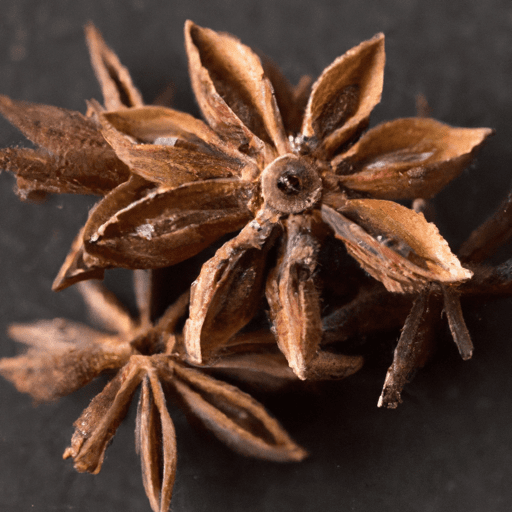Anise Extract: A Flavorful Addition to Your Culinary Adventures
If you’re a food enthusiast with a penchant for unique flavors and aromatic spices, then anise extract might just become your new culinary companion. This delightful ingredient adds a distinctive taste and fragrance to a wide range of dishes, making it a popular choice in kitchens around the world. In this blog post, we’ll dive into the world of anise extract, exploring its taste profile, common uses in cooking, nutritional benefits, and some intriguing history.
The Taste of Anise Extract
Derived from the seeds of the Pimpinella anisum plant, anise extract possesses a captivating aroma reminiscent of licorice. Its flavor profile is sweet and mildly spicy, with hints of tarragon and fennel. This unique combination of flavors creates a beautiful symphony in both sweet and savory recipes, tantalizing the taste buds with a delightful complexity that lingers on the palate.
Common Uses in Cooking
Anise extract is a versatile ingredient that can elevate a multitude of dishes. Let’s explore some of the popular culinary applications:
1. Baking Delights
In the realm of baked goods, anise extract shines brightly. It lends its distinctive taste to classic delights such as Italian biscotti, Springerle cookies, and French pastries. Just a few drops of this extract can transform a regular batch of cookies into an aromatic masterpiece, leaving a lasting impression of enchanting flavors.
2. Authentic Beverages
Anise extract plays a crucial role in the creation of several traditional beverages worldwide. The famous Mediterranean ouzo and Italian sambuca owe their intense anise notes to this extract. Additionally, it enhances the flavor profile of teas, infusions, and cocktails, turning an ordinary drink into an extraordinary sensory experience.
3. Savory Sensations
Not limited to desserts, anise extract harmonizes beautifully with savory dishes as well. It imparts a subtle, alluring sweetness to meat marinades, soups, stews, and stir-fries. Adding a touch of anise extract to your culinary creations can elevate them to a whole new level, adding depth and complexity to the final result.
Nutritional Value
Apart from its delightful taste and aroma, anise extract also offers several nutritional benefits. Here are a few worth noting:
- Fiber: Anise extract is rich in dietary fiber, which aids in digestion and promotes a healthy gastrointestinal system.
- Antioxidants: Loaded with potent antioxidants, anise extract helps combat harmful free radicals, supporting overall well-being.
- Vitamins and Minerals: Anise extract contains essential vitamins and minerals like vitamin C, calcium, iron, and magnesium, contributing to a balanced diet.
Anise Extract: A Historical Perspective
Anise extract’s captivating flavors have been cherished for centuries, and its roots trace back to ancient civilizations. This spice has been used in Egyptian, Roman, and Greek cuisines for its culinary and medicinal properties. It was believed to have calming effects and was used as a natural remedy to alleviate digestive ailments. Today, it continues to captivate taste buds, connecting us to culinary traditions steeped in history.
That Special Ingredient You’ve Been Missing
Whether you’re a seasoned chef or an adventurous home cook, anise extract has the power to ignite your culinary creations with its unique taste and aroma. From delicate desserts to robust savory dishes, the possibilities are endless. So, why not embrace the enchanting allure of anise extract and embark on a flavorful journey like no other?
Anise Extract
Origin and Common Uses: Anise extract is derived from the seeds of the anise plant, scientifically known as Pimpinella anisum. This plant is native to the eastern Mediterranean region and has been cultivated for centuries for its culinary and medicinal properties. Anise extract is commonly used as a flavoring agent in both sweet and savory dishes. It possesses a distinct licorice-like flavor, making it a popular addition to baked goods, candies, liqueurs, and savory dishes like soups and stews.
Nutritional Benefits: Anise extract is primarily used for its flavor rather than its nutritional value. However, it does contain some beneficial compounds. Anise seeds, from which the extract is derived, are a rich source of antioxidants such as anethole. Antioxidants help protect the body from damage caused by harmful free radicals.
Unique Properties: Anise extract contains an essential oil called anethole, which gives it its characteristic flavor. This oil is responsible for the licorice-like taste and aroma associated with anise extract. Anethole is also believed to have potential antimicrobial and anti-inflammatory properties, although further research is needed to fully understand its effects.
Historical Significance: Anise has a long history of use dating back thousands of years. It was highly valued by the ancient Egyptians, Greeks, and Romans for its culinary and medicinal properties. During medieval times, anise seeds were believed to have medicinal benefits and were used to treat digestive issues, relieve coughs, and freshen breath.
Please note that while anise extract is generally considered safe for most people when used in moderation, it may cause allergic reactions in some individuals. As with any ingredient, it is important to use anise extract according to the recommended guidelines and consult a healthcare professional if you have any concerns.




Use the share button below if you liked it.
It makes me smile, when I see it.